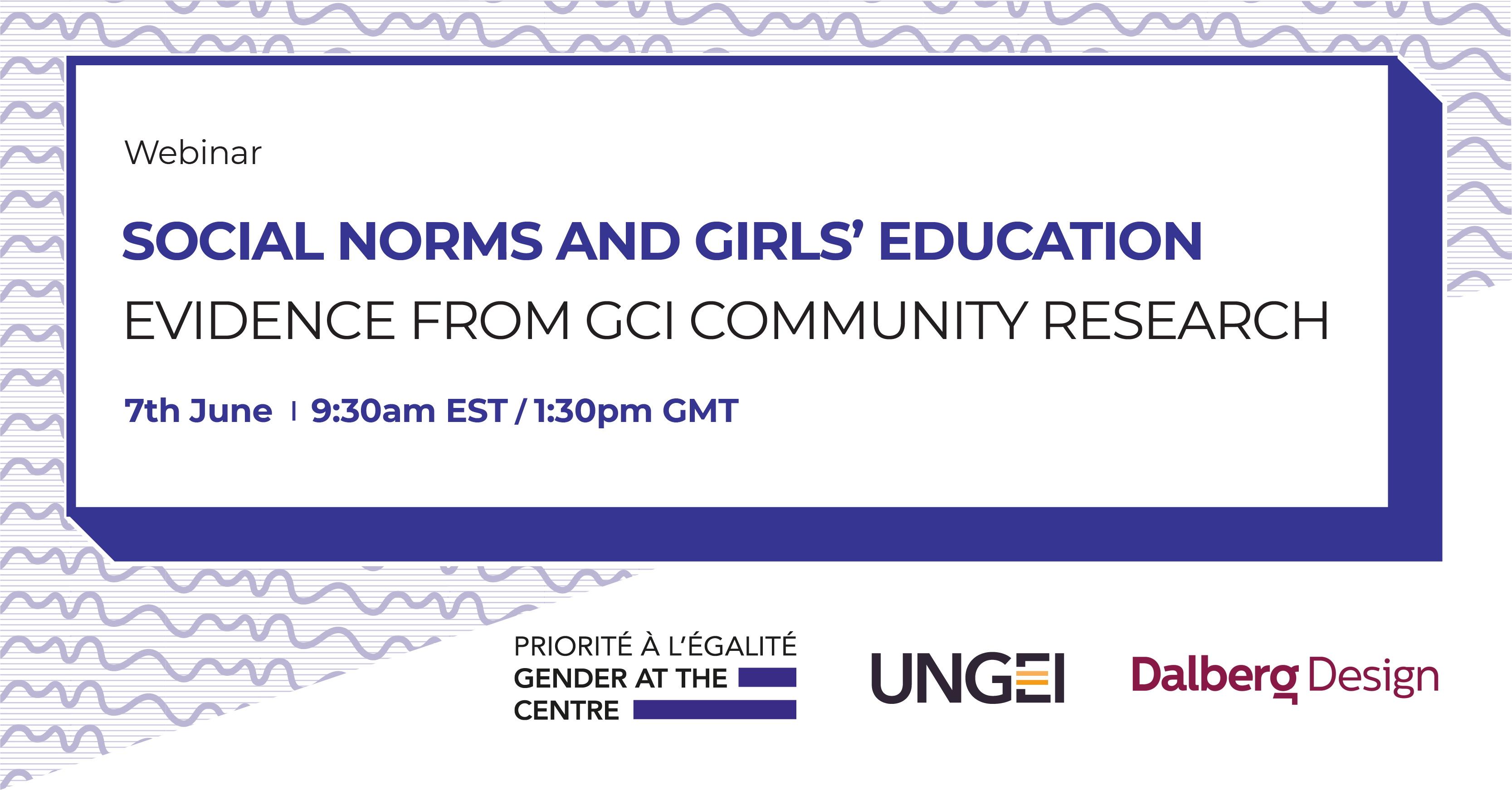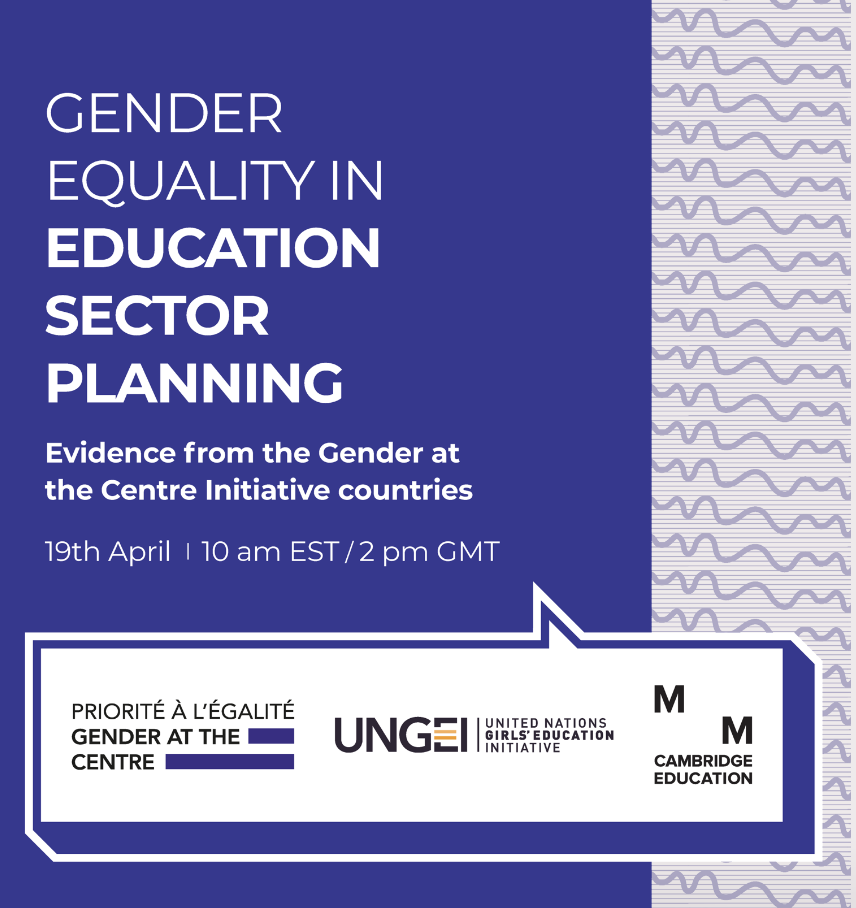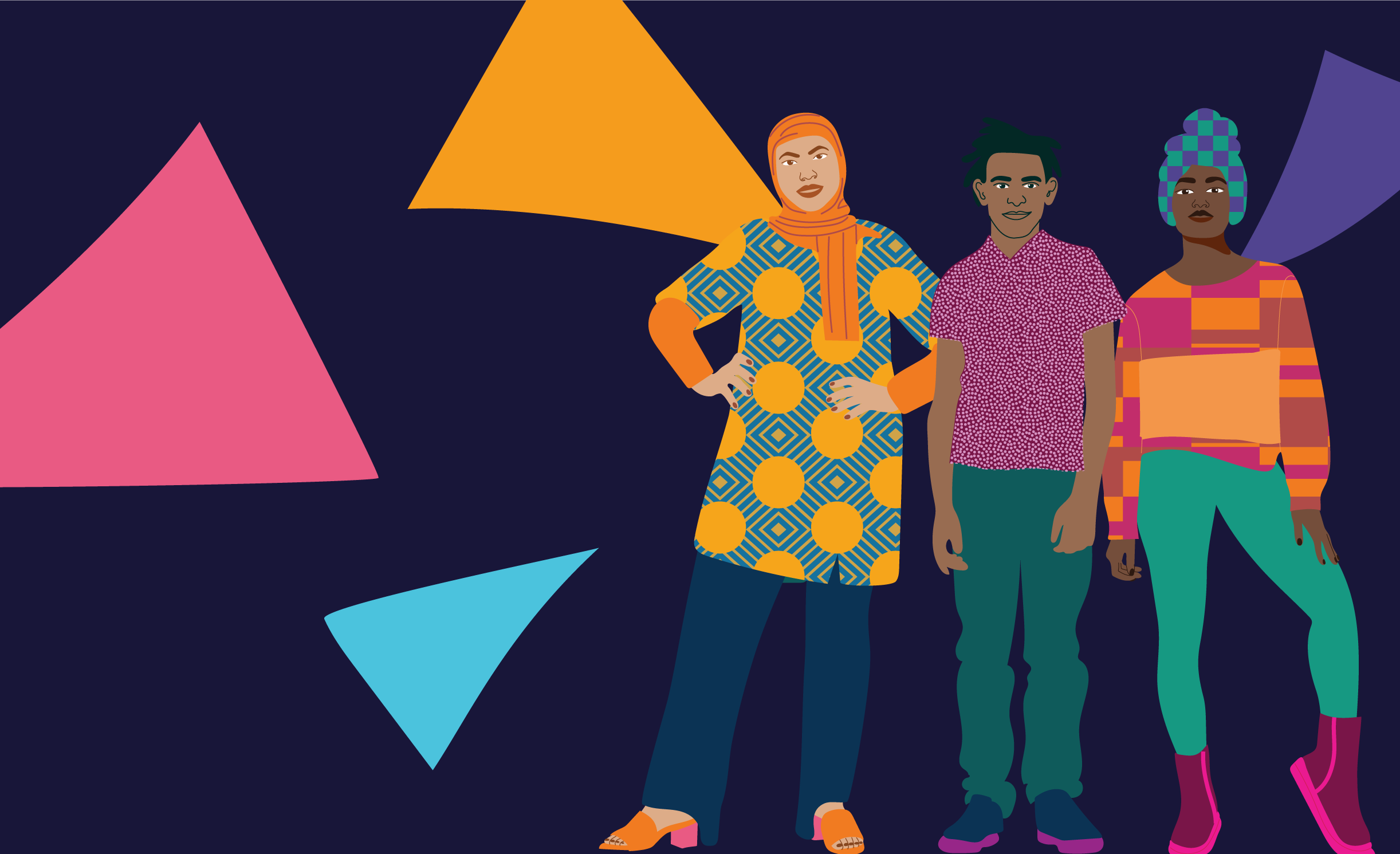“My father wasn’t like the other men. He taught his daughters how to dream, and dream big!” There is a sparkle in Edouine’s eyes, when she tells the story of how her father stimulated her throughout her school career, infusing her with the idea that education is the key to everything in life. Edouine is one of the young feminists participating in the GRESP workshop, held in Dakar (Senegal), from 27 to 30 September 2021.
In this very first in-person workshop on Gender-Responsive Education Sector Planning (GRESP) since the Covid-19 outbreak, UNGEI and its partners UNICEF, ANCEFA, FAWE and Gender@Work joined forces to drive forward gender equality in and through education. Facilitated by FAWE and ANCEFA, the workshop brought together civil society actors from FAWE, ANCEFA and Plan International, coming from 11 French speaking countries in West and Central Africa. Linked to the Gender at the Center Initiative (GCI), it aimed at strengthening civil society’s capacity to support governments in building truly gender-responsive education systems. The active participation of young feminists in the workshop shows the organizers’ commitment to intergenerational dialogue and amplifying youth’s voices. Throughout the workshop, these young activists shared their personal stories and commitments, as well as their vision on how to provide all girls and boys with equal opportunities to learn.
Alima Dramé, Permanent Secretary of AFRIYAN (African Youth and Adolescent Network), Senegal
What helped you complete your education? 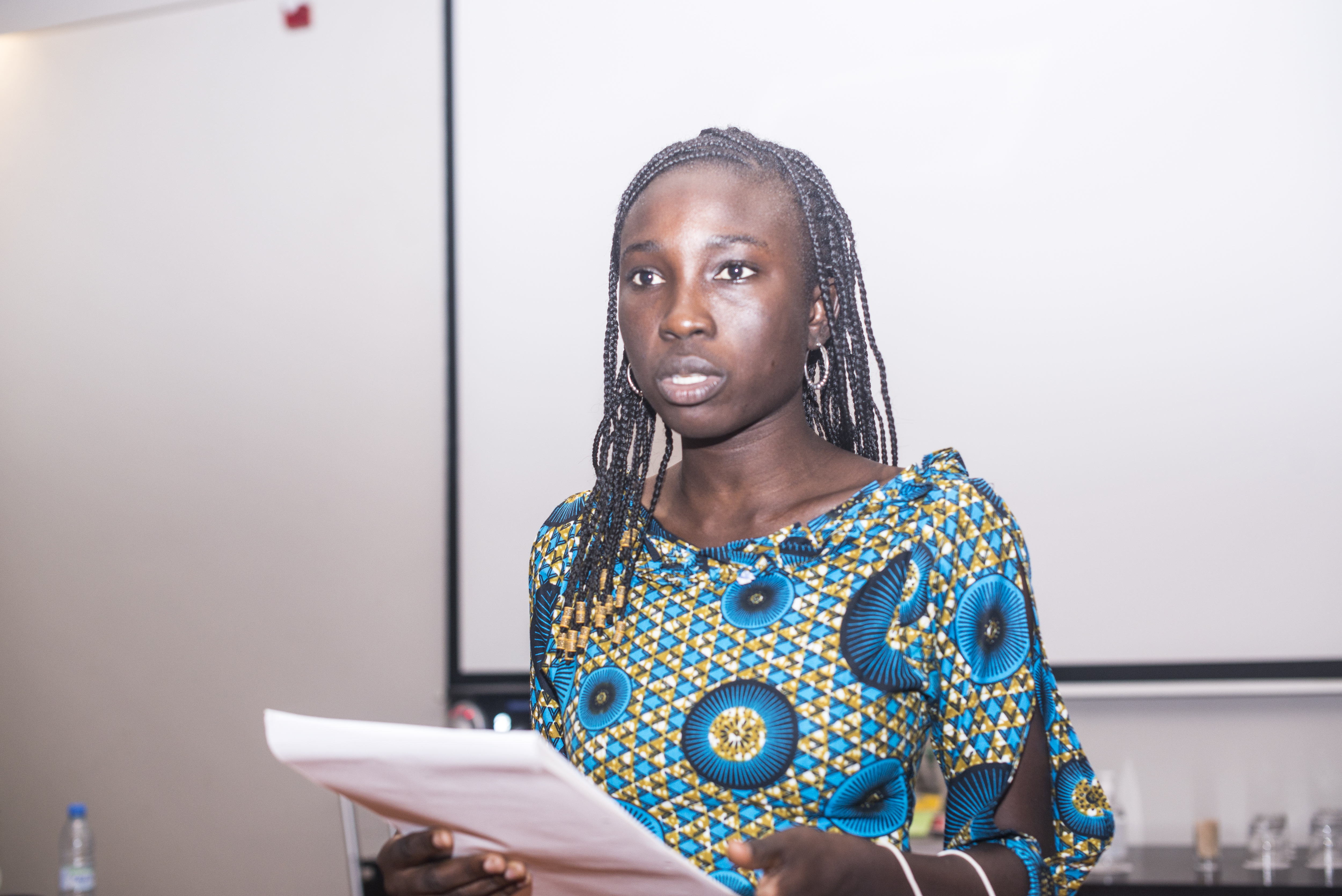
I was raised by my mother. For her, my education was very important. She herself had dropped out of school. She didn't want her children to make the same mistake. At the age of 9 I wanted to stop school, because I told myself that I was not smart enough to learn lessons by heart. In fact, I feared corporal punishment. I saw children who were beaten when they didn't know how to recite their lessons, and I didn't want to go through the same thing. But my mother motivated me to keep going.
What inspired your activism?
When I was 14 years old, I joined my school’s health club. There we talked about reproductive health, puberty, etc. I understood that you could change things by being informed and passing that information on to others. In my neighborhood there were many children who did not have access to quality education. So I joined my neighborhood’s youth association, where I am one of the founding members and where we talked about education and youth employment. My commitment is inspired by the idea that girls and boys, women and men should have the same opportunities for education and employment. We cannot neglect the potential of half the population!
If you were Minister of Education, what would be the first thing you would do to improve gender equality in education?
I would remove the costs of education. We talk about free education but in reality it is not free, because there are many things that parents have to pay. And if parents can't pay all these fees for all their children, they will prioritize the boys. Because they tell themselves that it will be the boys who will be looking for a job later.
How can we change these attitudes that prioritize boys’ education?
It has to start with ourselves. We as civil society actors, we must teach new ideas to our little nieces, to our parents, ... We have to show them that girls can go to school and have a job, that boys can help in the household. That's how the world will change!
Why should young people be involved in the fight for gender equality in education?
As the saying goes, "You can't shave a person's head in their absence." You can't treat a person's problems without the person being there. Young people are much more legitimate to represent themselves than their spokespersons. We must be in the decision-making bodies, so that politicians can take care of our needs.
Who was your role model?
My mother. She has always been a fighter and she still is. She is an independent and very courageous woman. She always gave us a good education. I am very grateful to her. But I also had male role models. Throughout my activist journey, I have been accompanied by men who supported me and coached me.
Prescillia Essongue, FAWE alumni, Gabon
Can you tell us about your life journey? 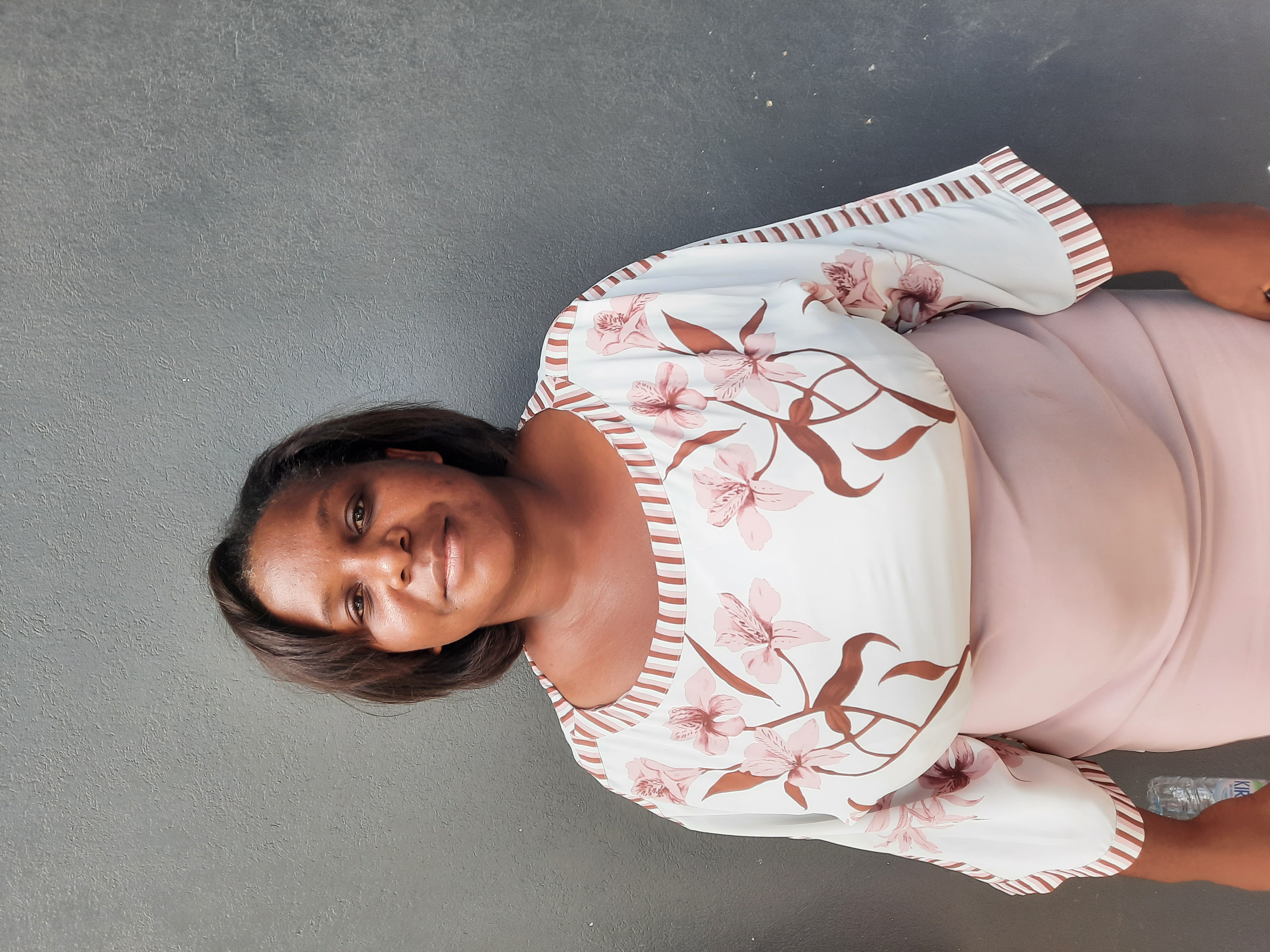
I grew up in a single-parent family with lots of brothers and sisters. People would tell my brothers: "You have to go to school, because one day you will have to find a job. Your sister she doesn't need to, because she will find a husband. At the age of 16 I was told that from then on, I was a woman and I had to take care of myself. In Gabon this is a hidden way of telling girls that they must look for a man who will provide for them and maybe even become a source of income for the family. Growing up, I unfortunately ended up applying these ideas to my life. I became pregnant and it disrupted the continuation of my university studies.
What inspired your activism?
When I realized that I had unconsciously reproduced the societal model that was expected of me, I decided to get involved in civil society. I started working in the communities because I knew that's where we need to change things. We need to change these stereotypical ideas about girls that exist within large parts of Gabonese society.
If you were Minister of Education, what would be the first thing you would do to improve gender equality in education?
I would make sure that girls can follow STEM at the same level as boys. In our education system it is the teachers who decide whether a student is oriented towards science, or rather towards literature. Many girls who want to have good grades to be able to progress to science, engage in sexual relations with teachers to influence their grades. As Minister, I would encourage guidance based on the outcome of the dialogue between the student, the parents and the school administration and not simply on grades. Thus, the student will be able to decide for himself if he or she wants to follow science or literature. It must depend on the passion of the child, not the choice of teachers.
Why should young people be involved in the fight for gender equality in education?
We can develop all the strategies and policies in the world to promote girls' education, but if we do not listen to the real stories of young girls, we will not understand anything. Young people are able to make people think about the emotional aspects of their experiences. You have to know how to look at the problem through the eyes of young people to really understand the heart of the problem. Otherwise we will develop strategies that miss the real problem.
Who was your role model?
My mother. It may be contradictory to what I said, but she is my example, because she was able to develop her career from scratch. She was a cleaning lady in a company, and by her proactivity and curiosity she knew how to surpass herself to be in a management position. She is truly a model of success for me.
Edouine Kirere, GIMAC Youth Network, DRC
What helped you complete your education? 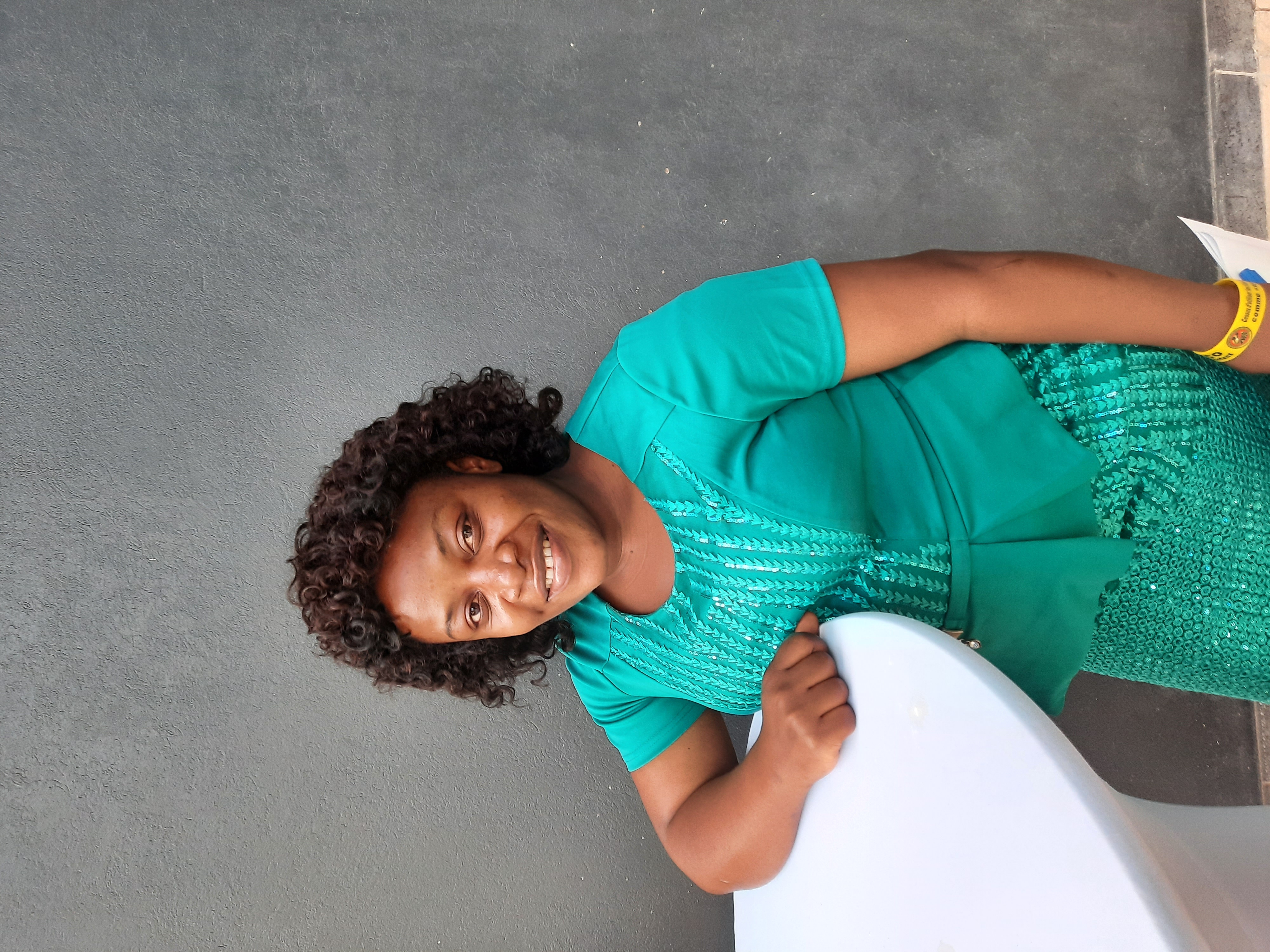
My father. When we were little, he would always ask us: "What is your dream? What do you want to become?” He told us that the key to everything in life was education. He had made it a rule that we must first have a college diploma before we could get married. His adage was: "a good child does double his father's studies".
What inspired your activism?
I've seen a lot of girls my age drop out of school because of pregnancy or marriage, because of sexual violence too. I saw so many girls who had no dreams, or their only dream was to get married. It awakened a commitment in me. I thought it's not fair that women have to face obstacles in their lives, just because they are born women.
If you were Minister of Education, what would be the first thing you would do to improve gender equality in education?
I would invest in early childhood education because that is where you have the greatest impact in a child's life. I always remember the things that my kindergarten teacher taught me. It is at this age that children must learn to dream, to understand that they can become someone.
Why should young people be involved in the fight for gender equality in education?
Young people have other perspectives and areas of interest than older people. You have to know how to listen to these points of view. Many young people lose their motivation for school, because the content is not adapted to what interests them.
Who was your role model?
My mother. She is very dynamic and has always worked outside the home. So I knew there were other options for a woman than to take care of the household. She is my example.
From early pregnancy and child marriage, over financial barriers, to deep-rooted beliefs about the role of girls in society, these stories show the significant obstacles that girls continue to face when trying to complete a quality education. Especially in West and Central Africa the challenges for women and girls to reach gender equality remain vast. But these young feminists also tell a story of hope. They name the role models who stimulated them to never give up. They share ideas on how the education system can tackle those barriers. And most importantly, they show an inspiring commitment to helping other girls and boys chase their dreams and reach their full potential!
